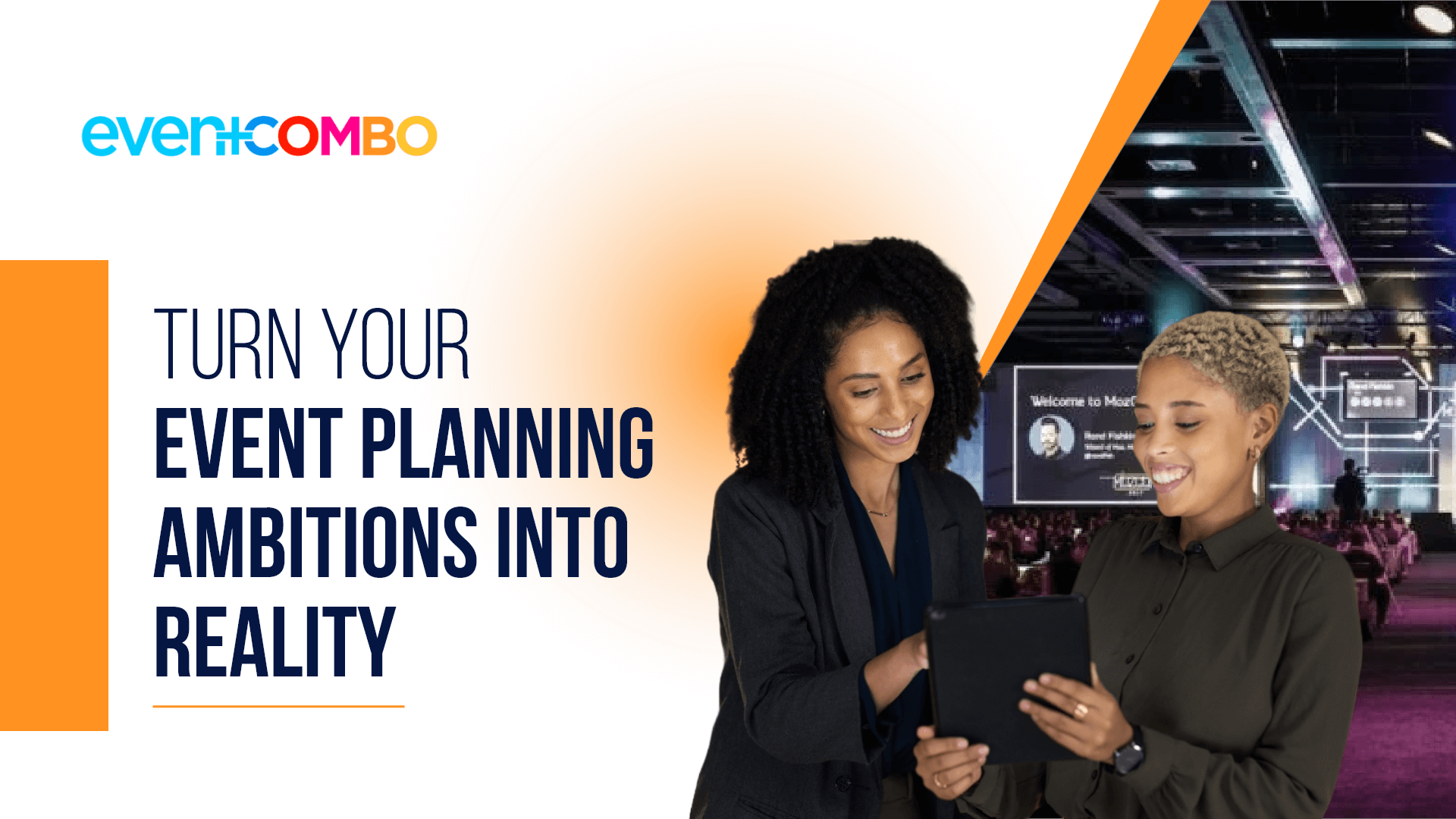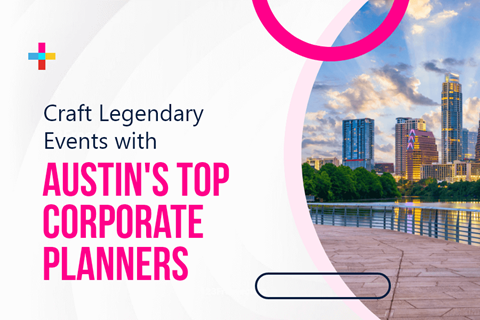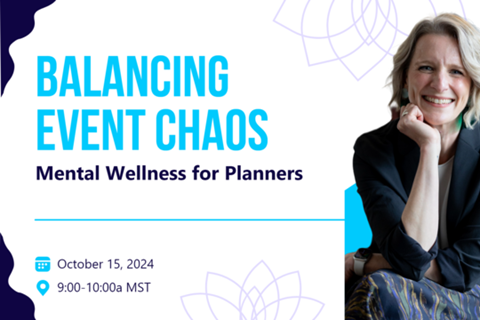How to Become an Event Planner: Skills, Education, & Experience You Need

Dec 02, 2024 Praggya Joshi
Event planning is an exhilarating profession, one in which getting stuck in a rut is impossible. Event professionals are some of the most dynamic individuals who thrive in an environment of fast-paced challenges. This field gives you many avenues to bring out-of-the-box ideas to life. If you see it as your calling, this post will break down how to become an event planner.
We'll explain each step involved in setting foot in the profession, gaining experience, and recognition as an expert. If you love working with people, exploring new ideas, and are not afraid of solving problems, a career in the events industry will be the best. Scroll down to learn how to chart your way to victory.
Core Skills Every Event Planner Needs
Every event planner needs to be a hyper-organized individual who is adept in managing time and finances. This profession demands a creative mindset, quick and logical thinking, and the ability to manage several tasks simultaneously. Let us explain them in detail:
- Time management - Planning an event comes with various tasks, each with a specific deadline. Deadlines can even clash, which makes time management an imperative skill.
- Multi-tasking - An event planner needs to oversee and manage aspects like event design, promotion, logistics, venue visits, and the like. There are many assignments and details to gather. So, knowing how to work productively is crucial.
- Budgeting - Proper resource allocation prevents overspending and issues related to hidden costs. The ability to prepare a planning budget also gives clarity over the entire project and contributes to maximizing event ROI.
- Creative vision - Visualizing and defining the event space and the type of activities needs a lot of creativity. You can make a lasting impression only if you can think open-mindedly and translate it into an action plan.
- Attention to detail - A great experience hinges on many small details related to venue, budgeting, logistics, and audience research and engagement. If you aren't detail-oriented, it's easy to make mistakes and get the blame.
7 Easy Steps on How to Become an Event Planner
Step 1: Understand the Role of an Event Planner

Before thinking of how to become an event planner, you should know the wide range of duties and responsibilities this profession brings.
As an event professional, you are in charge of creating the entire experience, which includes conception of the event idea, theme, finding a suitable venue, communicating with clients, and day-of logistics. If this brings the image of a multi-tasker to your mind, we wouldn't consider it wrong.
Regardless of whether you are a senior event planning professional, corporate event planner, or an event coordinator, these are the responsibilities you should know when learning how to become an event planner.
- Coordinating with internal staff, clients, and vendors to define event needs.
- Communicating the needs to senior executives and officials.
- Organize meetings about event idea and design
- Find and visit venues that support your event needs.
- Collaborate with your company stakeholders and local community groups to enhance the experience.
- Oversee the event from the beginning till the end and create a post-event report.
- Resolve event-day issues.
The core responsibilities of planning professionals remain the same across events, but specific details and focus of the tasks vary significantly depending on the event type. The different types of events include the following:
- Weddings
- Corporate events
- Social events
- Seminars
- Conferences
- Team-building events
- Networking events
- Product launches
- Sales kick-offs
- Workshops
- Training sessions
Step 2: Develop Necessary Skills

Event planners are highly organized individuals with strong communication skills. Otherwise, negotiating with stakeholders, such as clients, vendors, audiences, and internal teammates, becomes difficult. At the same time, they have strong problem-solving skills to resolve the multiple issues that can creep up at any point during planning or actual event.
So, the next step in knowing how to become an event planner is developing crucial skills. The most important ones are communication and collaboration. It’s vital to interact with everyone involved in the event. Prompt communication helps prevent misunderstandings and resolves conflicts, while collaboration maintains relationships with team members and stakeholders. It keeps everyone focused on the event's objectives.
The next significant skill is organization. Since every planning task has a deadline, proper organization helps complete them on time. It also allows you to keep client timelines on schedule, prevent overspending of budget, and plan deliveries and setups.
You cannot learn how to become an event planner without appreciating a solution-oriented attitude. A problem-solving mindset and skill enable planners to stay calm under pressure, use resources optimally, and come up with ingenuous solutions at critical times. It also allows them to develop plans to fall back on.
Last, but not the least is creativity. More than designing stunning events, creativity is about using the budget cleverly and marketing the event for the best results. A creative thinker also addresses unforeseen last-minute changes that are inevitable when executing events.
Step 3: Pursue Relevant Education and Certifications

A degree in meeting and event management or a discipline related to it like hospitality, marketing or PR amps up your position as a knowledgeable event professional. Although there are no requirements for formal qualifications, if you are serious about learning how to become an event planner, a degree will help you.
Programs with special emphasis on hospitality or marketing give you insights on the daily life of an event organizer.
To further strengthen your position, complete certification courses. Some prestigious certification courses to boost your credibility after a degree program include the following:
- Certified Meeting Professional (CMP)
- Certified Special Events Professional (CSEP)
- Certified Professional in Catering and Events (CPCE)
- Certified Event Planning Specialist (CEPS)
- Certified in Exhibition Management (CEM)
- Digital Event Strategist (DES)
- Global Travel Professional (GTP)
- Certified Quality Event Planner (CQEP)
- Virtual Event and Meeting Management (VEMM)
Choose a certification program based on your specialization, interests, and career goals.
Step 4: Gain Hands-On Experience

In the events landscape, experience matters more than training. It doesn't mean that you shouldn't get a degree. But immediately afterward, you should start applying those skills and knowledge to the real world.
According to Liz Sinclair, MD of ESP Recruitment, a specialist recruiting agency for the events industry, ''initially when we’re recruiting, we look at a candidate’s experience first and foremost—and if the skills match, we would put them forward even if they don’t have the relevant degree.''
So how to become an event planner with relevant experience?
To start with, grab entry-level opportunities, no matter whether it's paid or unpaid. It can be organizing extra-curricular activities, a college field trip, or volunteering with non-profit organizations. If you cannot find such opportunities, take the lead in planning events for your friends, colleagues, or family.
Capitalize on these avenues to build up your work experience and relevant skills that will impress potential employers. Also, build your network on social media platforms like LinkedIn and X (formerly Twitter) and find internships for your preferred planning domain.
Step 5: Build Your Portfolio

A strong portfolio gives a glimpse into your experience, skills, and talent. You can understand how to become an event planner and become the best one, but if there's no evidence of your hard work, you won't be counted among the top.
Your portfolio should have the following characteristics:
- Be up to date with all the details of your work.
- Highlight your experience for a specific or multiple types of events.
- Name the clients you have worked with
- Highlight your methodology to execute events
- Visuals that show event design and ambiance
- Mention the event tech you used to plan different events.
- Client testimonials
Step 6: Network in the Industry

The bigger your network and connections, the more advantageous your position is in the events industry. Its why newbie planners are advised to network and join professional organizations. It allows you to gain more information about major trends in your industry and find mentoring opportunities. You get more knowledge about how to become an event planner in your field.
Networking and expert connections also bring many sponsorship opportunities your way. To build a strong network and progress in your event planning career, follow this advice.
- Use platforms like LinkedIn to connect with industry professionals.
- Join a professional association for event planners like MPI, PCMA, ILEA, or SEP.
- Attend industry events and trade shows
- Attend recurring conferences to stay on top of the latest event trends.
- Attend event planning workshops and courses to continuously improve your skills and meet skilled professionals.
Step 7: Market Yourself as a Professional Event Planner

Besides networking, your focus should also be on marketing your services. The more you promote yourself on social media channels, especially LinkedIn, and show what makes you unique, the more opportunities for growth will arrive.
Put simply; marketing is all about building a strong personal brand online that makes people trust your expertise.
Maximizing your online presence is key to learning how to become an event planner today. Here are the best ways to market yourself as professional event planner and get more clients:
- Create a website and list your services, rates, certifications, and experience. Don't forget to include client testimonials.
- Define your voice and style of messaging. Use it to promote your services in different ways on social media.
- Do not try to focus on everything related to event planning. Find your niche and post unique and insightful content related to it.
- Network with industry-related businesses in your area and request them to give you exposure. This can be mentioning your services in social media or having your pamphlets in their office.
- Organize webinars or virtual events to educate people about event planning and how you can resolve major challenges.
Conclusion
You now have a clear answer to the question - how to become an event planner. The profession is highly rewarding for people who are go-getters and have a creative bent of mind. Your experience, no matter how big or small it is, matters significantly. Since many things are beyond your control in event planning, the more you involve yourself in the real-world, the better you can deal with unpredictability.
Networking and marketing yourself are also equally important to gaining a strong foothold. And yes, don't forget to stay on top of event tech trends. Your ability to manage and execute a variety of events improves significantly with the right tools and tech. You can check out Eventcombo's extensive range of event tech to plan better experiences here.
close















